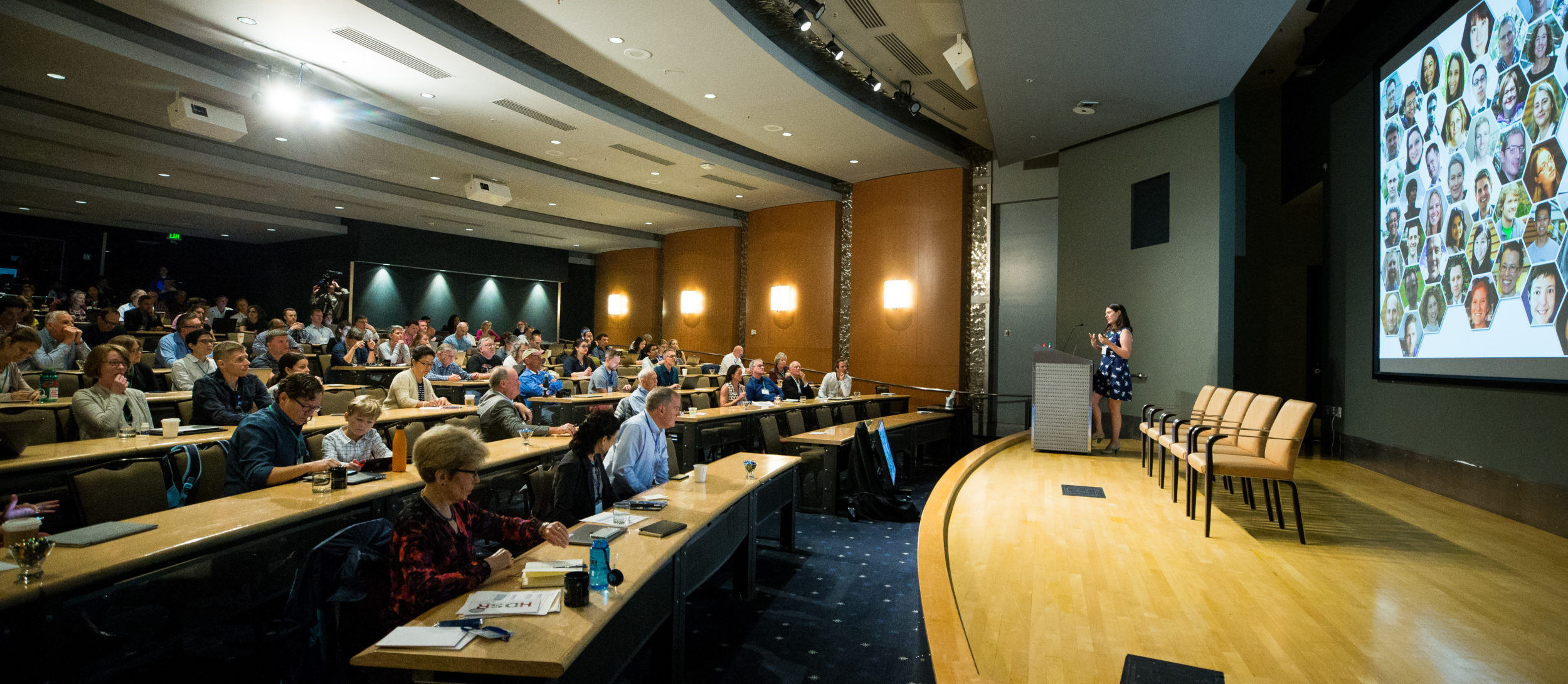Ifeoma Ajunwa – Cornell University
Brian Bot – Sage Bionetworks
Paul Boutros – Ontario Institute for Cancer Research, University of Toronto
Rich Caruana – Microsoft Research
Dan Cavanaugh – University of Virginia
David Clifford – GMIT at General Motors
Melissa Creary – The University of Michigan, School of Public Health
Christiana DelloRusso – Providence
Valerie Florance – National Institute of Health
Luca Foschini – Evidation Health
Stephen Friend – Sage Bionetworks, 4YouandMe
Laura Germine – McLean Hospital and Harvard University
Nils Gilman – Berggruen Institute
Justin Guinney – Sage Bionetworks
Eric Hekler – University of California, San Diego
Dana Lewis – OpenAPS
Lara Mangravite – Sage Bionetworks
Anna McCollister-Slipp – Scripps Research Institute
Aurelia Moser – Mozilla
Elaine Nsoesie – University of Washington
Alexander S. Parker – Mayo Clinic
Wanda Pratt – University of Washington
Nathan Price – Institute for Systems Biology
Dorothea Salo – Information School at the University of Wisconsin-Madison
John Wilbanks – Sage Bionetworks
Joon-Ho Yu – University of Washington Presenter videos can be viewed online.
| Ifeoma Ajunwa, PhD, is Assistant Professor at Cornell University’s Industrial and Labor Relations School (ILR), and a Faculty Associate Member of Cornell Law School. She is also a Faculty Associate at the Berkman Klein Center at Harvard University and an Affiliate of the Center for the Study of Inequality at Cornell University. She holds a Ph.D. from the Sociology Department of Columbia University in the City of New York (emphasis on Organizational Theory and Law and Society). She is interested in how the law and private firms respond to job applicants or employees perceived as “risky.” She looks at the legal parameters for the assessment of such risk and also how technology and organizational behavior mediates risk reduction by private firms. “I examine the sociological processes in regards to how such risk is constructed and the discursive ways such risk assessment is deployed in the maintenance of inequality. I also examine ethical issues arising from how firms off-set risk to employees.” | |
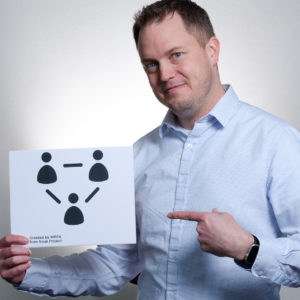
Brian Bot is a Principal Scientist and Head of Outreach and Strategic Development at Sage Bionetworks. Previously, Brian worked as a statistician at the Mayo Clinic primarily in cancer clinical trials and cancer genomics. His passion lies at the intersection of biomedical research, technology, and policy. He was recently named by Mozilla as one of “50 People Who Are Making the Internet a Better Place.” Brian’s current work aims to make the biomedical research system more effective and equitable by challenging the traditional roles of researchers, institutions, funders, and research participants. At its heart, this work is rooted in building trust between these parties as well as with the public at large.
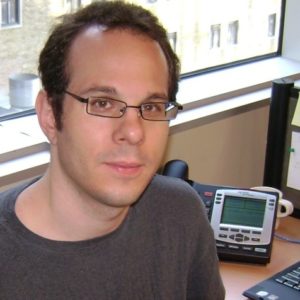
In 2008, Dr. Paul Boutros started his independent research career at the Ontario Institute for Cancer Research. Paul is now a Principal Investigator in Informatics & Biocomputing at OICR, and an Associate Professor in the Departments of Pharmacology & Toxicology and Medical Biophysics at the University of Toronto. He is a Prostate Cancer Canada Rising Star in Prostate Cancer Research, a Terry Fox New Investigator Award recipient, a University of Waterloo Young Alumni Award winner and recipient of the Early Career Graduate Student Teaching Award. Paul’s research focuses on personalizing therapy for prostate cancer by developing novel statistical methodologies. He leads the Canadian Prostate Cancer Genome Network to develop biomarkers for intermediate risk prostate cancer, and he leads the ICGC-TCGA DREAM Somatic Mutation Calling Challenge that is setting global standards for analyzing cancer genomic data.
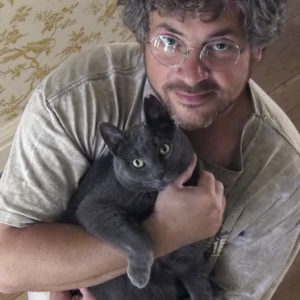
Rich Caruana is a Principal Researcher at Microsoft. Before joining Microsoft, Rich was on the faculty in the Computer Science Department at Cornell University and at UCLA’s Medical School. Rich’s Ph.D. is from Carnegie Mellon University. His thesis on Multi-Task Learning helped create interest in a new subfield of machine learning called Transfer Learning. Rich received an NSF CAREER Award in 2004 (for Meta Clustering), best paper awards in 2005 (with Alex Niculescu-Mizil), 2007 (with Daria Sorokina), and 2014 (with Todd Kulesza, Saleema Amershi, Danyel Fisher, and Denis Charles), co-chaired KDD in 2007 (with Xindong Wu), and serves as area chair for NIPS, ICML, and KDD. His current research focus is on machine learning for medical decision making, intelligible modeling, deep learning, and computational ecology. For the last 7 years Rich and his collaborators have been developing a machine learning method that’s as accurate as full-complexity models, but also very interpretable, so that it’s safer to use in critical domains such as healthcare.
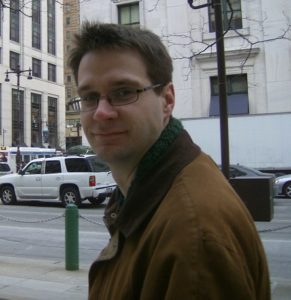
Dan Cavanaugh is the Alvin V. and Nancy Baird Curator of Historical Collections at the University of Virginia’s Claude Moore Health Sciences Library. As head of the library’s special collections department, he is responsible for overseeing the acquisition, long-term preservation, and dissemination of rare and unique information resources that document the history of the health sciences. Cavanaugh and his team are working to ensure that rare print and digital resources under their care will be preserved for the benefit of future generations.

Dave Clifford joined GM in 2016 after a career working on Machine Learning and Artificial Intelligence applications for start-ups, defense, and the healthcare industry. Currently, at General Motors, Mr. Clifford acts as the Chief AI/ML Scientist for GMIT in Global Data Strategy and Services, where he leads a team of applied mathematicians, electrical engineers, and civil and transportation engineers. The team is charged with supporting and developing a culture of machine learning integrated with enterprise software systems to solve problems for autonomous vehicles, the future of mobility, and other challenges faced by large and legacy firms during a period of change and transformation. At the Defense Advanced Research Projects Agency, from 2004-2010 and 2013-2016, Mr. Clifford provided consulting and oversight across a range of programs in biology, applied mathematics, neuroscience, and cybernetics. He holds a Master’s in Science and Technology Policy from the George Washington University.
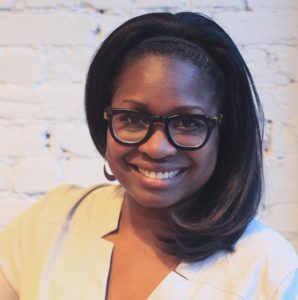
Melissa Creary, PhD, is an Assistant Professor in the Department of Health Management and Policy in the School of Public Health at the University of Michigan. She received her PhD in Interdisciplinary Studies (focusing on Health, History, and Culture) at the Graduate Institute for the Liberal Arts (ILA) and Masters in Public Health at Emory University. She served as a health scientist at the Centers for Disease Control and Prevention in the Division of Blood Disorders for nine years, where she helped create the first national program and data collection system for sickle cell disease (SCD) at the agency. Dr. Creary’s research and teaching interests broadly include how science, culture, and policy intersect. Through this lens and using historical and ethnographic methods, she investigates how national policy for SCD is influenced by race and other notions of belonging. She has been published in Social Science and Medicine, Genetics in Medicine, The American Journal of Bioethics, and the Huffington Post.
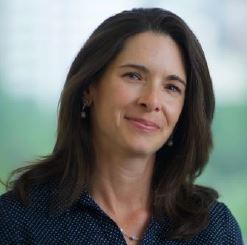
Dr. Christiana DelloRusso serves as a Partner at Providence Ventures, the strategic venture capital arm of Western U.S. health system Providence St. Joseph Health, headquartered in Seattle, Washington. At Providence Ventures, Christiana is a generalist healthcare investor, but has specific expertise in chronic disease management and prevention, genomics & precision medicine, and behavioral/mental health & wellness. Prior to joining Providence, Christiana was Vice President, Commercialization at Life Science Washington (formerly the WBBA), and Managing Director of WINGS, the Washington Medical Technology Angel Investor Network. Other roles include private consulting for multiple emerging biotechnology and medical technology companies in Cambridge, MA, and supporting the Executive Director of the Boston-based, non-profit organization Women Entrepreneurs in Science and Technology (WEST). Christiana currently serves on the Board of Directors of precision medicine company N-of-One, and is a Board Observer of digital health company Omada Health. Christiana earned a PhD in Physiology from the University of Michigan, and completed postdoctoral work at the University of Washington in Seattle and Harvard Medical School & Children’s Hospital Boston.
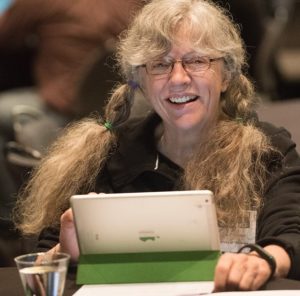
Valerie Florance, PhD, is an Associate Director of the National Library of Medicine (NLM), NIH, where she directs NLM’s Extramural grant programs. NLM’s grant programs focus on the development of novel informatics and data science methods and approaches to meet needs in biomedical and behavioral research relating to human health. She also serves as program director for NLM’s highly-regarded university-based pre-and post-doctoral training programs in biomedical informatics and data science. Before coming to NLM in February 2001, she spent 3 years leading a visioning project undertaken at the Association of American Medical Colleges (AAMC) to help the association’s members bring the power of computers and networks to bear on managing health information, and worked in library administration at 3 different universities.
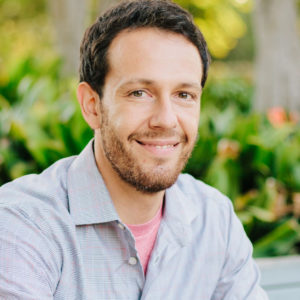
Luca Foschini, PhD is the Co-founder and Chief Data Scientist at Evidation Health, responsible for data analytics and research and development. At Evidation he has driven research collaborations resulting in numerous publications in the fields of machine learning, behavioral economics, and medical informatics. Previously, Luca held research positions in industry and academic institutions, including Ask.com, Google, ETH Zurich, and UC Santa Barbara. He has co-authored several papers and patents on efficient algorithms for partitioning and detecting anomalies in massive networks. Luca holds MS and PhD degrees in Computer Science from UC Santa Barbara, and ME and BE degrees from the Sant’Anna School of Pisa, Italy.
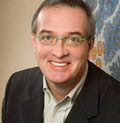
Dr. Stephen Friend is the co-founder and President of 4YouandMe and Chairman of the Board of Sage Bionetworks. Formerly Director at Apple Inc on their Special Health Projects Team and Senior Vice-President at Merck & Co., Friend co-founded Rosetta Inpharmatics. Much of his research has focused on how to explore fundamental unknowns. Such explorations have included co-leading the team that discovered the first human cancer susceptibility gene in 1986, to using a candidate gene approach to find that defects in p53 were responsible for “Li-Fraumeni Syndrome where families are prone to breast colon and blood cancers, to showing that “synthetic lethal“ screens could identify methods to selectively kill tumor cells without effecting normal cells.to finding very rare individuals who are resilient to childhood diseases, and most recently to looking at the benefits of using wearable devices to help individuals navigate between health and disease. Friend has set-up 4YouandMe to explore fundamental issues around how to make individual symptom predictions and how to return agency to individuals so they might navigate their own paths between health and disease.
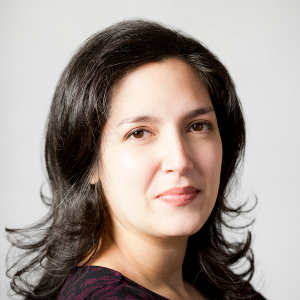
Laura Germine is Co-Director of the Institute for Technology in Psychiatry at McLean Hospital, and a faculty member of Harvard Medical School. She is also Creator and Director of TestMyBrain.org, a citizen science research initiative for understanding cognitive health. Back to Top
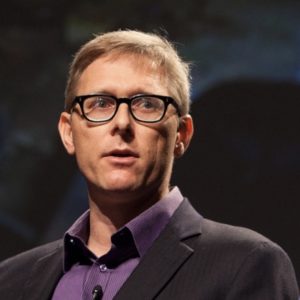
Dr. Nils Gilman is Vice President of Programs at the Berggruen Institute. From 2013 to 2017 he served as Associate Chancellor and Chief of Staff to the Chancellor at U.C. Berkeley, and as the Founding Executive Director of Social Science Matrix, Berkeley’s flagship interdisciplinary social science research center. Earlier in this career, he worked in scenario planning and as the research director at the Monitor Group and Global Business Network, and in software companies such as Salesforce.com and BEA Systems. He is the author of Mandarins of the Future: Modernization Theory in Cold War America (2004), Deviant Globalization: Black Market Economy in the 21st Century (2011), as well as numerous articles on intellectual history and political economy. He holds a B.A., M.A., and Ph.D. in History from U.C. Berkeley.
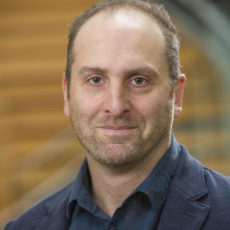
Justin Guinney, PhD is the Vice President of the Computational Oncology group at Sage Bionetworks. His group contains specialists from multiple domains, including molecular biology, computer science, and oncology, and focuses on the development of computational models for optimizing patient diagnosis, prognosis, and treatment in cancer. Justin is an expert at large-scale analysis of genomic data, and works regularly with clinicians to link these models to complex cancer phenotypes. Prior to joining Sage Bionetworks, Justin co-founded and managed a software company called FiveSight Technologies, now part of Intalio Corp. Dr Guinney received a BA from the University of Pennsylvania in History, a BS from the University of Illinois, Urbana-Champaign in Electrical Engineering, and a PhD from Duke University in Computational Biology and Bioinformatics.
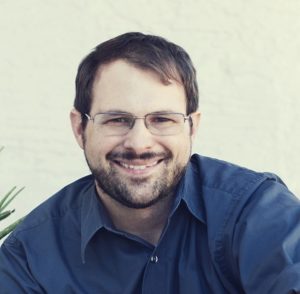
Eric Hekler is an Associate Professor, Department of Family Medicine and Public Health (DFMPH) at the University of California, San Diego (UCSD). His research interests are behavior change, agile science, patient-led science. human-computer interaction, control systems engineering.
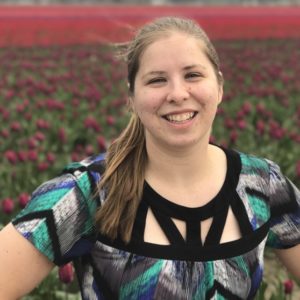
After building her own DIY “artificial pancreas”, Dana Lewis helped found the open source artificial pancreas movement (known as “OpenAPS”), making safe and effective artificial pancreas technology available (sooner) for people with diabetes around the world. She is part of the #WeAreNotWaiting movement & engages with patient communities globally to solve healthcare problems in new and innovative ways. She is now a Principal Investigator (PI) for a Robert Wood Johnson Foundation funded grant project to work to scale patient-led innovation and scientific discovery in more patient communities.
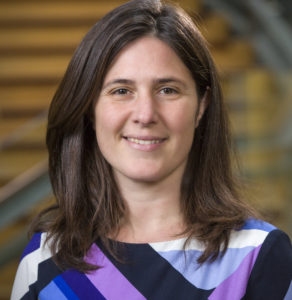
Lara Mangravite, PhD is President of Sage Bionetworks. Previously, Dr. Mangravite served as Director of the Systems Biology research group at Sage Bionetworks where she focused on the application of collaborative approaches to advance understanding of disease biology and treatment outcomes at a systems level with the overriding goal of improving clinical care. Dr. Mangravite obtained a BS in Physics from the Pennsylvania State University and a PhD in Pharmaceutical Chemistry from the University of California, San Francisco. She completed a postdoctoral fellowship in cardiovascular pharmacogenomics at the Children’s Hospital Oakland Research Institute.
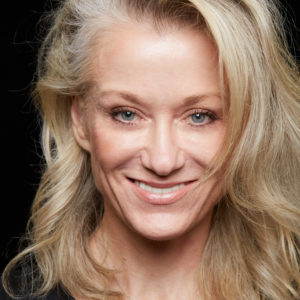
Anna McCollister-Slipp is a health technology entrepreneur and reform advocate focused on creating platforms to enable patients, caregivers, providers and researchers to collaborate directly to design research and build solutions that work. Anna recently formed VitalCrowd, a Web-based collaborative platform aimed at crowdsourcing the design of health research. In addition, she is co-founder of Galileo Analytics, a Visual Data Exploration and advanced data analytics company focused on democratizing access to and understanding of complex health data. Previously, she served as Chief Advocate for Participatory Research at the Scripps Translational Science Institute (STSI). Through that work, Anna worked as a Co-Primary Investigator for the “All of Us “Research Program, a centerpiece of the National Institutes of Health Precision Medicine Initiative, started by President Obama. Prior to her career in digital health and research reform, Anna worked in global communications and public affairs, advising clients and working for organizations involved in array off issues, ranging from economic and foreign policy to global public health and communications.

Aurelia Moser is a developer and curious cartographer building communities around code at the Mozilla Foundation and particularly with Mozilla Science. Previously of Ushahidi, Internews Kenya, and Carto, she’s been working in the open source and non-profit science and journalism domains for several years. Concurrent to this, she teaches web-programming at the School of Visual Art and at the Interactive Telecommunications Program at NYU and co-leads the NYC chapter of Girl Develop It, a non-profit with over 12,000 members that teaches women how to code in low-cost classes.
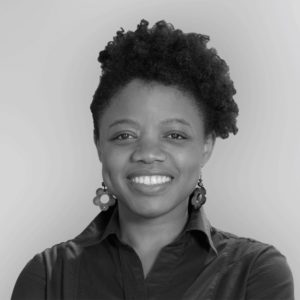
Elaine Nsoesie is an Assistant Professor of Global Health at the Institute for Health Metrics and Evaluation, and an Adjunct Assistant Professor in the Department of Biomedical Informatics and Medical Education at the University of Washington. She has a PhD in Computational Epidemiology from the Genetics, Bioinformatics and Computational Biology program at Virginia Tech. She also has an MS in Statistics and a BS in Mathematics. She is interested in the use of digital data and technology to improve health. Her research is focused on the development of statistical and computational approaches for public health surveillance and disease forecasting. She also writes journalistic articles on the use of digital data for public health. You can find her on Twitter at @ensoesie.
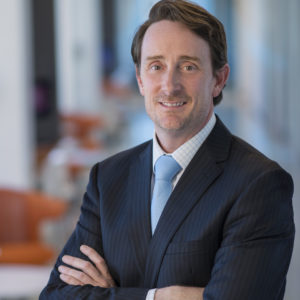
Alexander S. Parker, Ph.D., is the vice chair of the Department of Health Sciences Research and a consultant in the Department of Urology at Mayo Clinic in Florida. Dr. Parker serves as the Cecilia and Dan Carmichael Family Associate Director for the Center for Individualized Medicine in Florida and also serves as an associate medical director in the Department of Development. He joined the staff of Mayo Clinic in 2004 and holds the academic rank of professor of epidemiology and urology, Mayo Clinic College of Medicine and Science. Dr. Parker’s research centers on the molecular and clinical epidemiology of urologic cancers, primarily kidney, prostate and bladder cancer. His work in kidney cancer has focused on understanding the molecular mechanisms that support kidney cancer aggressiveness and then helping Mayo physicians translate this knowledge into better, more individualized care for our patients.
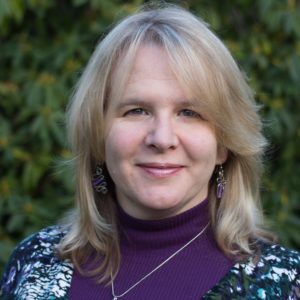
Dr. Wanda Pratt is a Professor in the Information School with an adjunct appointment in Biomedical & Health Informatics in the Medical School at the University of Washington. She received her Ph.D. in Medical Informatics from Stanford University, and her M.S. in Computer Science from the University of Texas. Her research focuses on understanding patients’ needs and designing new technologies to address those needs. She has worked with inpatients as well as people coping with a variety of chronic diseases, such as cancer, diabetes, asthma, and heart disease. Dr. Pratt has received best paper awards from the American Medical Informatics Association (AMIA), the ACM CHI Conference on Human Factors in Computing Systems, the ACM Conference on Computer-Supported Cooperative Work (CSCW), and the Journal of the American Society of Information Science & Technology (JASIS&T). Her research has been funded by the National Science Foundation, the National Library of Medicine, the Agency for Healthcare Research & Quality, the Robert Wood Johnson Foundation, Intel, and Microsoft. Dr. Pratt is a fellow of the American College of Medical Informatics. In addition, she is on the Board of Directors for AMIA, and Chaired their 2016 Annual Symposium.
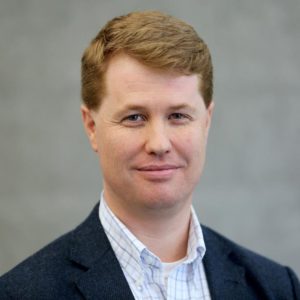
Dr. Nathan Price is Professor & Associate Director of the Institute for Systems Biology in Seattle where he co-leads with Lee Hood the Hood-Price Integrated Lab for Systems Biomedicine. He is Co-Founder and on the Board of Directors of Arivale, a scientific wellness company that was named as Geekwire’s 2016 startup of the year. He was the recipient of early career awards from NIH, NSF, American Cancer Society, the Roy J. Carver Charitable Trust, and Genome Technology. He was also named as a Camille Dreyfus Teacher-Scholar, and received the 2016 Grace A. Goldsmith Award for his work launching scientific wellness. He serves on numerous advisory boards including for Roche (Personalized Medicine division), Providence St. Joseph Health, Habit, Trelys, Novo Nordisk Foundation Center for Biosustainability, Science Translational Medicine and Cell Systems. He is also a fellow of the European Society of Preventive Medicine.
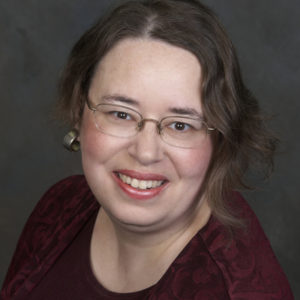
Dorothea Salo is a Faculty Associate in the Information School at the University of Wisconsin-Madison. She teaches graduate and undergraduate courses on information and its organization, information technologies, free-and-open movements, digitization, and digital preservation. She has written and presented internationally on privacy, scholarly communication, copyright, and research-data stewardship. She holds an MA in Library and Information Studies and another in Spanish from UW-Madison.

John Wilbanks is the Chief Commons Officer at Sage Bionetworks. Previously, Wilbanks worked as a legislative aide to Congressman Fortney “Pete” Stark, served as the first assistant director at Harvard’s Berkman Center for Internet & Society, founded and led to acquisition the bioinformatics company Incellico, Inc., and was executive director of the Science Commons project at Creative Commons. Wilbanks holds a B.A. in philosophy from Tulane University and also studied modern letters at the Sorbonne.
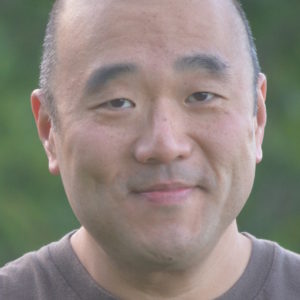
Joon-Ho Yu is a research assistant professor in the Division of Genetic Medicine and Division of Bioethics and Palliative Care, Department of Pediatrics, University of Washington School of Medicine, and a faculty member at the Treuman Katz Center for Pediatric Bioethics, Seattle Children’s Hospital. He received his MPH and PhD in the interdisciplinary field of public health genetics from the University of Washington and is a recipient of a K99R00 career development award from the National Human Genome Research Institute, National Institutes of Health focused on return of genome sequencing results to members of racial and ethnic minority communities. Joon studies, develops, and evaluates approaches and strategies to benefit under-represented communities in research and healthcare in areas such as genomics, precision medicine, mHealth, and learning healthcare systems. Before academia, Joon worked for over a decade in the non-profit sector to advance minority health and now continues to work with diverse communities and community-based organizations on a broad range of capacity building and policy advocacy efforts.
